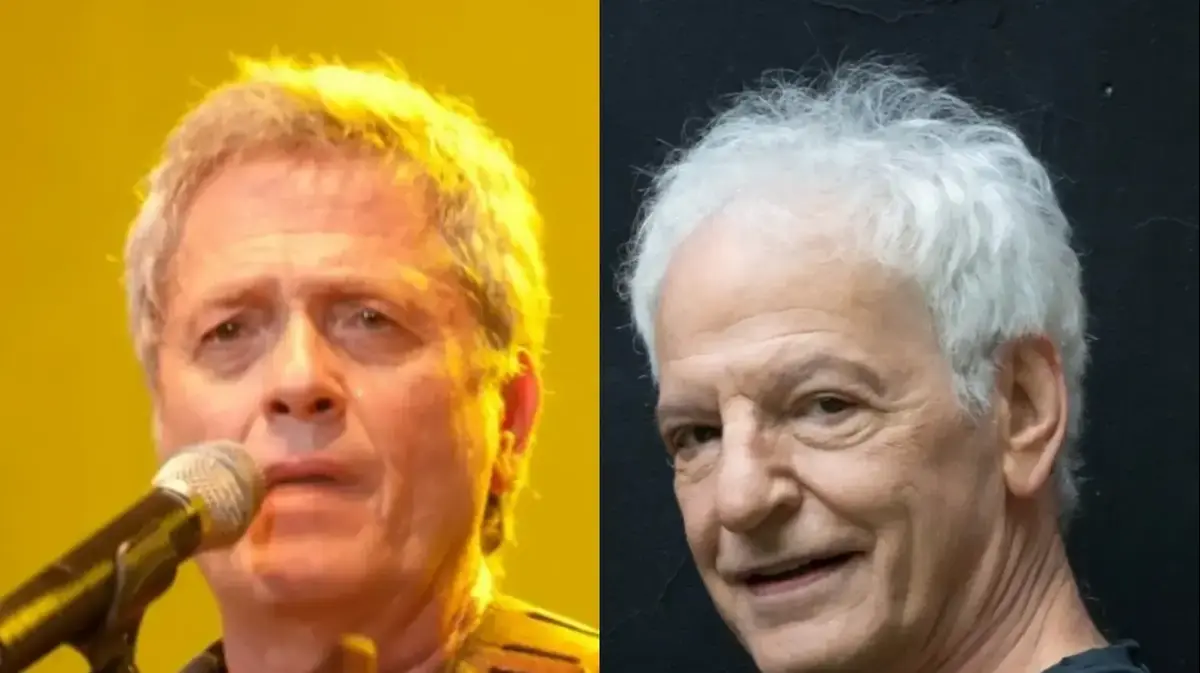culture
Music
Very attentive
When even Shlomo Artzi and Shalom Hanoch are desperate for the situation, it is not clear what will save us
"Glue", Shlomo Artzi's new song, is a touching song that offers comfort to its listeners despite the despair and pain;
Shalom Hanoch shells with a gloomy, pessimistic and contemptuous song;
And Idan Raichel and Eden Ben Zaken are surprisingly bad with a casual and heavenly song
Tags
Shalom Hanoch
Shlomo Artzi
Idan Raichel
Eden Ben Zaken
Nadav Menuhin
Tuesday, 02 February 2021, 09:11
Share on Facebook
Share on WhatsApp
Share on general
Share on general
Share on Twitter
Share on Email
0 comments
Idan Raichel and Eden Ben Zaken - "miss you"
Here comes the moment again: another collaboration by Raichel with a leading artist in the last year and something, after Yehoram Gaon, Stav Begar and Eyal Golan.
Some of these songs won compliments, but did not survive the test of time;
Kind, gentle - no more - and in the end passed with the wind.
"Miss you", belongs to the same category: a pleasant ballad in one ear, but coming out of the other.
The unusual phrase "miss you" (and not, for that matter, "miss you") came to the song, according to the press release, from a cute distortion in his daughter's words.
Certainly there is nothing wrong with combining it in the text, but in the end result, there is something a little strange and out of context.
It is possible that if Raichel had developed an artistic idea around the original expression, an interesting text could have come out here, but in the end - the rest of the text is almost generic (the phrase "thinks only of you" also appears here).
Raichel has earned and honestly a reputation as a musician who knows how to get the best out of performances, especially in ballads, especially with curling singers.
This is not the case: Eden Ben Zaken provides a reasonable performance here, which does not sharpen her abilities but dulls them, and we are left with a yawned and slightly banal song.
A small moment of grace appears in the last house, with a musical move that suddenly breaks the circular rhythm of the other houses.
When an old man sings "find you in every corner, even with eyes closed, in every word."
Immediately after those beautiful seconds, the song returns to its boredom.
More on Walla!
NEWS
We and They: The police come out bad from almost every article in the newscast
To the full article
Bar Tsabari - Hadera
After "Johnny", one of the surprising hits of the past year, the huge discovery Bar Tsabari returns with a new song, a kind of love-hate letter to her room - a small town with lots of squares and gray chimneys but no nightlife, but what to do, is home.
What begins with as a Greek-Yemenite lament turns, with a lot of humor, a great voice - and an excellent clip, it must be said - into a real celebration, and there is even a happy ending.
If "Johnny" wanted to know what else Sabri has to offer, then "Hadera" proves that this is not a one-time exit - but a talented and diverse performer, and an original writer, who has something to say and how to say it.
By the way, there are not many songs about specific peripheral cities in Israeli music.
Admittedly, in recent years we have also been able to hear a song by Aya Zehavi Feiglin of the same name about Hadera, and one can find a few more negligible examples, but it can be said that very few songs have been written about this city as well.
Even when Sabri does this, he is hung on tall trees.
"They say it's not far from Hadera, between the sea and the sands," he quotes at the end of the song, "Shlomo Artzi's" Absurd, "" What fun that Shlomo wrote a few lines about us "- a perfect ending to the song, which distills the whole story: single pride where not told , And yet he is home.
Shlomo Artzi - glue
And speaking of Shlomo Artzi, he also has something to say.
The upheavals of the past year have caused - apparently, I have not checked - the thinnest year in terms of performances that the beloved singer had in the last Jubilee, maybe even more.
And as stage artists who miss the applause, all the more so a musician like Artzi, who has a deep connection with his audience.
Against this background one should see "Glue", his new corona song, as a song of despair.
And if Bar Tsabari quotes "Absurd", Artzi himself describes in this song a fluid world whose concepts lose meaning.
When he expresses deep sadness about the economic collapse ("Friends play at traffic lights because they run out of money"), the plans that reality puts to laugh ("The album cover is ready, we will release it on Passover - only in what year do not know"), the culture that is dying ("Close the city The Lost Movies ", which is Cinema City), and the Israeli society that is tearing itself to shreds (" glue will not catch up with us because the quarrel is still going on ") - Artzi concludes that" evening falls on the world ".
He wraps the rest in pictorial language, as befits the absurd reality that happened to become a reality ("Believers sail on flying ships to the artist").
And there is also something that can be interpreted as a bite to Aviv Geffen.
Yes, sometimes the rhymes are absurd ("Sophisticated Space Car / Sophisticated Crazy", "Chocolate" / "Docu Movie"), and not every glossy image (on the one hand "These are the banal" years of masks ", and on the other hand" you offer me to kiss you through prom masks ", Which is already charming), but in its entirety" Glue "is a touching song, offering the comfort that Artzi has been offering to his listeners for decades: when everything looks bad - you can always dance.
It does not end without the promise: "Tomorrow we will return to dance tight - it will be fine."
At the same time, it has to be said that Artzi has had better vocal performances in recent years, and part of the problem is the insistence on pushing a lot of words and syllables in a line, which is very heavy on him and the song, and makes it difficult for him to sweep.
Artzi is a friend here of his uncle Tessa, who has been a partner in one of his biggest hits of the last decade - "Give and Take".
Apparently, this collaboration is expected to spread over a significant portion of the album.
This is an intriguing choice, because Tessa is a producer with a dominant and very characteristic sound - while in "Glue" it is less noticeable.
The answers will come before Pesach.
Shalom Hanoch - Government
The gospel atmosphere in Shalom Hanoch's new song, "Shelton", returns the ear directly to "In This Incarnation", which came out exactly 30 years ago, in early 1991. But that probably ends the similarity between the two songs: "In This Incarnation" is an optimistic celebration of an open future And full of possibilities; "Rule" is a gloomy, pessimistic song, with a bitter look at the past and contempt for the present.
And yet there is also a novelty in it: I would not have guessed it, but apparently "The Good Bad and Your Sister," the song that Hanoch released along with Tuna at the height of the protest in Balfour, made Hanoch want to do rap himself. To do this, he enlists the help of super producer Tamir Muscat (Efrat Gush, Balkan Beat Box, Hava Alberstein, Eviatar Banai and many more), who also plays all the instruments. While such attempts may seem pathetic at times, this is not exactly the case this time around. Hanoch's overt topical anger, mixed with Muscat's meticulous cover, sounds logical in 2021, and even satisfying. Perhaps the Balfour protest brought back one of Israel's top musicians, who has several protest songs in his arsenal, straight to his powerful energies.
While the pace and execution are successful, it seems that Enoch still has more to learn about writing verses. True, "rule" is even more blatant than the song that preceded it - openly talking about conquest and the false price paid over the years, with the recurring motif, as in the previous song, being the bill payment at the end of the meal - but less sharp. Too many lines here are confused, along the lines of "You live in a real movie about life, live, based on real events, which happened in reality, in broad daylight." If you want effectiveness, anger should also be precise.
Share on Facebook
Share on WhatsApp
Share on general
Share on general
Share on Twitter
Share on Email
0 comments








